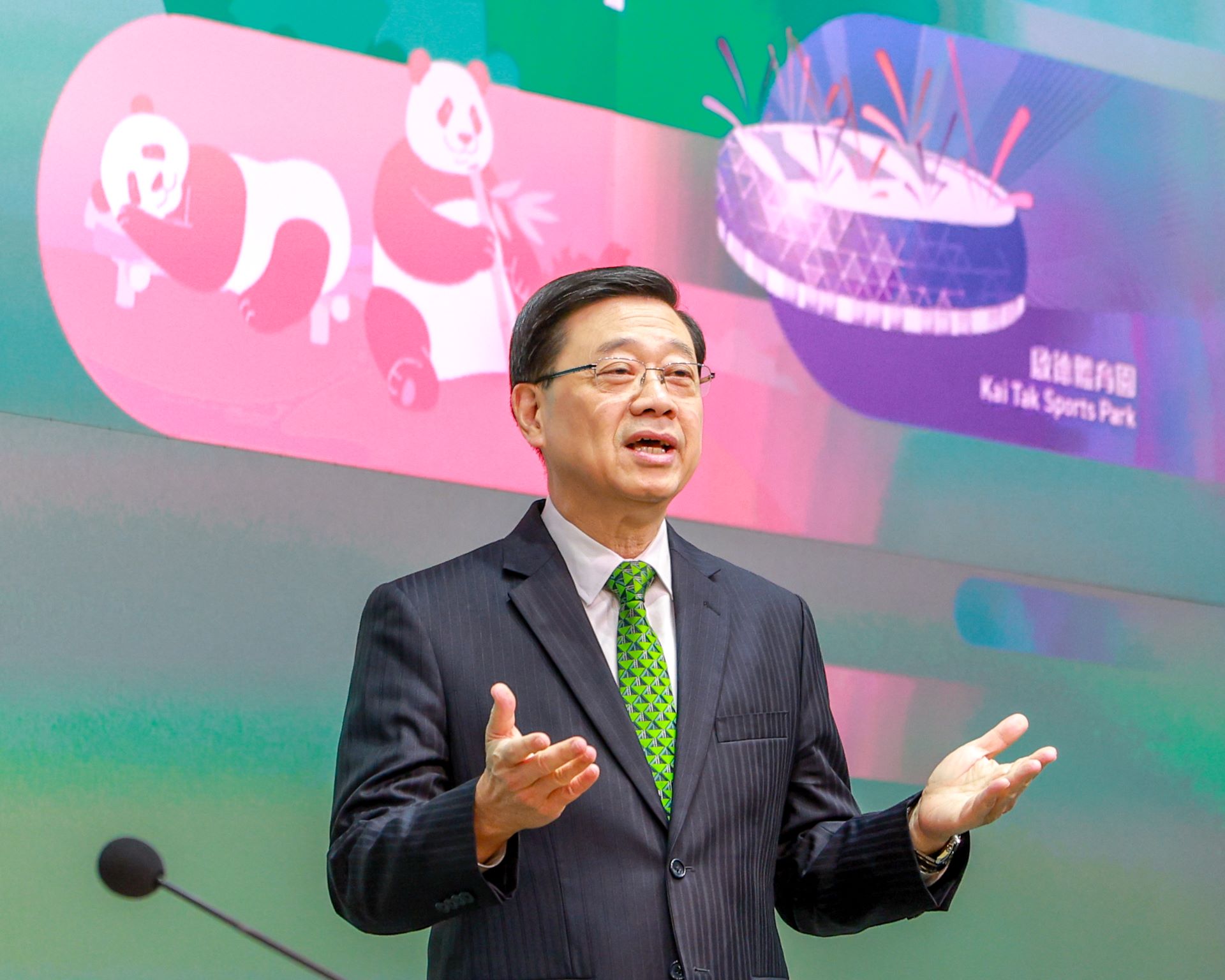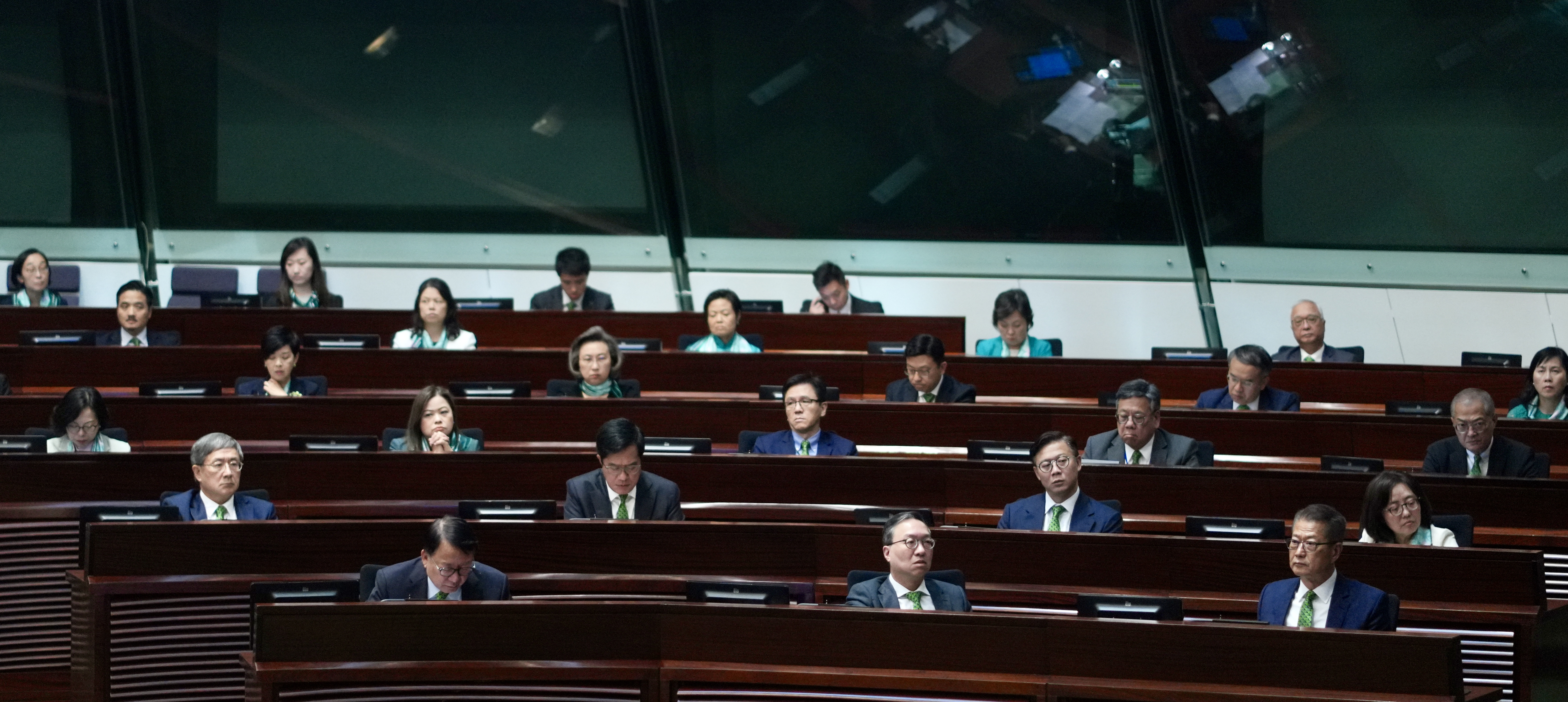
Chief Executive John Lee Ka-chiu reaffirmed his commitment to developing education on Wednesday, with key initiatives like raising the ceiling for non-local undergraduates and stepping up promoting the “Study in Hong Kong” brand.
Delivering his fourth Policy Address, he pledged to expedite the building of infrastructure, such as dormitories and the proposed university town in the Northern Metropolis, and advance digital education in primary and secondary schools.
Lee outlined an array of measures to exalt the city’s education sector and cement its reputation as a premier international education hub.
ALSO READ: Lee pledges to boost economy, livelihoods in his 4th Policy Address
The special administrative region, he said, will increase the limit on non-local undergraduate enrolment from the current 40 percent to 50 percent, starting from the 2026-27 academic year.
It will be the second such quota hike in two years following the doubling of non-local undergraduate admissions since the last school year -- from the equivalent of 20 percent of the local student intake to 40 percent.
The increase has produced results. The 2024-25 academic year saw 17,161 non-local self-funded students enrolled in more than 200 University Grants Committee-funded bachelor’s degree programs, compared with about 14,800 a year before. The figure represented 23.2 percent of the funded local student spots at the same study level.
READ MORE: HK eyes enhanced accountability system, AI to boost governance
Meanwhile, the over-enrolment ceiling for self-financing research postgraduate places will go up from 100 to 120 percent.
Introducing a more geographically diverse student cohort is another key priority, with efforts to intensify the “Study in Hong Kong” brand.
Lee said the Education Bureau will spearhead a new task force on “Study in Hong Kong”, teaming up with the UGC, the Innovation, Technology and Industry Bureau and the Hong Kong Talent Engage, among others, to ramp up the higher education sector’s global profile.

The vision will be primarily grounded in the form of a large-scale “Hong Kong: Your World-class Campus” promotion campaign. The UGC will provide funding support of HK$40 million ($5.14 million) for the eight funded universities to enhance publicity, as well as teacher and student recruitment overseas and on the Chinese mainland.
In the 2022-25 triennium, the UGC committed HK$20 million to bankroll eight public-funded universities’ international student recruitment drives and global partnership initiatives.
As for anticipated student accommodation shortages, Lee said the scope of the Hostels in the City Scheme will be expanded to redevelopment projects to further increase the supply of student dormitories. The initiative, which began accepting applications in July, waives rezoning requirements for commercial buildings expected to be converted into student hostels, and allows developers to retain a high plot ratio.
Lee also said the government will earmark new sites for dedicated hostel development and invite market proposals this year.
READ MORE: New HK program to fast-track academic, research and industry synergy
The Northern Metropolis’ University Town also topped Lee’s agenda, as the SAR government faces clarion calls to fast-track the development of this new engine for Hong Kong’s economic development.
The authorities will study university town models worldwide and solicit input from local, mainland and international stakeholders to put forth industry-focused, site-specific development recommendations for the project.
The chief executive also announced a phased land release schedule for the university town -- Hung Shui Kiu in 2026, Ngau Tam Mei in 2028 and New Territories North New Town in 2030.
At the basic education level, the SAR government will allocate a HK$2-billion fund to support the integration of artificial intelligence into the core curricula of primary and secondary schools, and release the Blueprint for Digital Education in Primary and Secondary Schools next year.
The blueprint is expected to outline strategies to guide the alignment between primary and secondary curricula for information technology, the compilation of an AI literacy learning framework, the incorporation of AI education into the core curriculum, and AI training for educators.
Contact the writer at wanqing@chinadailyhk.com


